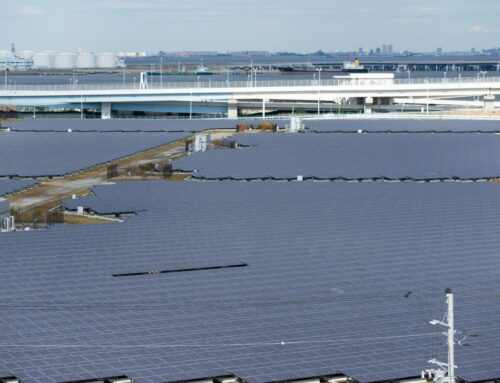Solar Power Guidelines: Your Essential Guide
Understanding the Basics: What Are Solar Power Guidelines?
Solar power is a bright solution for a sustainable future, but navigating the Solar Power Guidelines can be daunting. These guidelines are essential for ensuring safe, efficient, and compliant solar energy systems. By understanding these basics, you can harness the sun’s power effectively and responsibly, promising a greener tomorrow.
Solar Power Guidelines serve as a roadmap for anyone interested in installing solar panels. They cover everything from site assessment to system maintenance, ensuring that your solar setup is both efficient and compliant with local regulations. These guidelines are crucial for maximizing energy output and minimizing environmental impact.
Key Aspects of Solar Power Guidelines
- Site Assessment: Evaluating the location for optimal sunlight exposure.
- System Design: Choosing the right components and layout for efficiency.
- Installation Standards: Ensuring safe and compliant setup procedures.
- Maintenance Protocols: Regular checks to sustain performance and longevity.
By adhering to these Solar Power Guidelines, you can ensure that your solar energy system is not only effective but also safe and sustainable. Transitioning to solar power becomes a seamless process when you understand and follow these essential guidelines.
How to Choose the Right Solar Power System for Your Home
Are you ready to harness the power of the sun and reduce your energy bills? With the right solar power system, you can transform your home into an eco-friendly powerhouse. However, choosing the right system can be daunting. This guide will walk you through the essential Solar Power Guidelines to ensure you make an informed decision.

Curious about solar? Let us help you discover how solar energy can revolutionize your home and save you money. Request Your Free Solar Estimate at SOLAR ENERGY
Evaluate Your Energy Needs
Before diving into solar solutions, assess your current energy consumption. Calculate your average monthly usage by reviewing past electricity bills. This will help determine the size of the solar system you need. Consider future energy needs if you plan to add appliances or expand your home.
Understand Solar Panel Types
Solar panels come in various types, each with distinct advantages:
- Monocrystalline Panels: High efficiency and space-efficient.
- Polycrystalline Panels: Cost-effective with a slightly lower efficiency.
- Thin-Film Panels: Flexible and lightweight, ideal for unique installations.
Choose based on your budget, space, and efficiency requirements.
Consider Installation and Maintenance
Installation is a crucial step in setting up your solar power system. Hire certified professionals to ensure safety and efficiency. Regular maintenance, such as cleaning panels and checking connections, will maximize your system’s lifespan and performance.
The Financial Benefits of Following Solar Power Guidelines
Are you ready to unlock the potential of solar energy? Solar Power Guidelines can be your roadmap to significant savings. The problem is, many homeowners overlook these guidelines, missing out on financial benefits. By adhering to these guidelines, you promise not only to save money but also to contribute to a sustainable future.
Maximize Your Savings
Following Solar Power Guidelines can lead to substantial financial gains. By optimizing your solar panel installation, you can reduce your electricity bills significantly. Moreover, many regions offer tax incentives and rebates for compliant installations, further enhancing your savings.
Increase Property Value
Adhering to Solar Power Guidelines can also boost your property’s market value. Homes equipped with efficient solar systems are in high demand, often selling at a premium. This means that your investment in solar energy not only saves you money but also increases your property’s worth.
- Reduced Energy Costs: Lower monthly bills.
- Tax Incentives: Potential rebates and credits.
- Higher Resale Value: Attractive to eco-conscious buyers.
By embracing Solar Power Guidelines, you’re not just saving money—you’re investing in a brighter, more sustainable future.
Navigating Solar Power Regulations: What You Need to Know
In today’s world, where sustainability is more than just a buzzword, solar power emerges as a beacon of hope. However, diving into the world of solar energy isn’t as straightforward as it seems. The maze of Solar Power Guidelines can be daunting, but fear not—understanding these regulations can pave the way to a greener future. Let’s explore the essentials of navigating these guidelines with ease.
Understanding Local Regulations
Before installing solar panels, it’s crucial to familiarize yourself with local regulations. These rules can vary significantly from one region to another. Key considerations include:
- Zoning laws: Ensure your property is eligible for solar installations.
- Permitting processes: Obtain necessary permits to avoid legal issues.
- Incentives and rebates: Research available financial incentives to reduce costs.
The Role of Utility Companies
Utility companies play a pivotal role in solar power adoption. They often have specific requirements for connecting solar systems to the grid. Consider the following:
- Net metering policies: Understand how excess energy is credited.
- Interconnection agreements: Ensure compliance with utility standards.
- Grid capacity limits: Be aware of any restrictions on solar energy contributions.
By staying informed and proactive, you can navigate the complexities of Solar Power Guidelines effectively, ensuring a smooth transition to renewable energy. Remember, knowledge is power, and in this case, it can also be your path to sustainable living.
Maximizing Efficiency: Tips for Optimal Solar Panel Placement
Harnessing the power of the sun is a brilliant way to reduce energy costs and contribute to a sustainable future. However, without proper guidance, you might not fully capitalize on your solar investment. Solar Power Guidelines are essential to ensure your panels are working at their peak efficiency. By following these tips, you can maximize your solar energy output and enjoy greater savings.
Consider Sun Exposure
The most critical factor in solar panel placement is ensuring maximum sun exposure. Ideally, panels should face true south in the northern hemisphere and true north in the southern hemisphere. This orientation captures the most sunlight throughout the day, enhancing energy production.
Optimize Tilt Angle
The angle at which your solar panels are installed can significantly impact their efficiency. Adjusting the tilt to match your latitude can help maximize exposure. During winter, a steeper angle captures more low-angle sunlight, while a flatter angle is optimal for summer.
- Latitude-based tilt: Aligns with your geographical location for optimal sun capture.
- Seasonal adjustments: Fine-tune angles to adapt to seasonal sun path changes.
Avoid Shading
Even partial shading can drastically reduce solar panel efficiency. Ensure that trees, buildings, or other obstructions do not cast shadows on your panels. Regularly trimming nearby foliage can help maintain optimal exposure.
Regular Maintenance
Keeping your solar panels clean and free from debris is crucial. Dust, leaves, and bird droppings can block sunlight, reducing efficiency. Regular cleaning ensures that your panels operate at their full potential, adhering to the best Solar Power Guidelines.
By following these tips, you can ensure that your solar panels are positioned for maximum efficiency, allowing you to enjoy the full benefits of solar energy.
Common Mistakes to Avoid When Implementing Solar Power Guidelines
Implementing solar power can be a game-changer for both the environment and your energy bills. However, many people stumble when navigating Solar Power Guidelines, leading to costly errors and inefficiencies. By understanding common pitfalls, you can ensure a smoother transition to solar energy and maximize your investment.
Overlooking Local Regulations
One frequent mistake is neglecting to check local regulations and zoning laws. Solar Power Guidelines vary significantly by region, and failing to comply can result in fines or the need to remove your solar panels. Always consult with local authorities or a solar expert to ensure your installation meets all legal requirements.
Ignoring System Maintenance
Another common oversight is ignoring the maintenance needs of your solar system. Regular cleaning and inspections are crucial to maintaining efficiency and longevity. Neglecting these tasks can lead to decreased performance and unexpected repair costs. Establish a maintenance schedule to keep your system running smoothly.
- Regular cleaning: Dust and debris can accumulate on panels, reducing efficiency.
- Routine inspections: Identify and fix issues before they escalate.
Choosing the Wrong System Size
Selecting the wrong system size is another pitfall. An undersized system won’t meet your energy needs, while an oversized one can lead to unnecessary expenses. Evaluate your energy consumption and consult with a professional to determine the optimal system size for your home or business.
How Solar Power Guidelines Can Enhance Your Property Value
Are you looking to boost your property’s market appeal? Solar Power Guidelines might be your golden ticket. With the increasing demand for sustainable energy solutions, properties equipped with solar power systems are becoming more attractive to buyers. This shift not only promises a greener planet but also a potential increase in your property’s value.
Understanding Solar Power Guidelines
Solar Power Guidelines provide a roadmap for effectively integrating solar energy systems into your property. These guidelines ensure that installations meet safety standards, optimize energy efficiency, and comply with local regulations. By adhering to these guidelines, homeowners can enhance their property’s appeal and functionality.
- Safety Standards: Ensure installations are safe and reliable.
- Energy Efficiency: Maximize the energy output and savings.
- Regulatory Compliance: Avoid legal issues and fines.
Benefits of Following Solar Power Guidelines
Following Solar Power Guidelines can significantly enhance your property’s value. Homes with solar installations often sell faster and at higher prices. Buyers are increasingly aware of the long-term savings and environmental benefits that come with solar energy, making such properties more desirable. Additionally, some regions offer tax incentives for solar-equipped homes, further boosting their market value.
The Environmental Impact of Adhering to Solar Power Guidelines
In today’s world, where environmental concerns are at the forefront, adhering to Solar Power Guidelines is more crucial than ever. These guidelines not only help in optimizing energy efficiency but also significantly reduce our carbon footprint. The problem many face is understanding how these guidelines translate into real-world benefits. By following these standards, we promise a cleaner, more sustainable future for our planet.
Benefits of Following Solar Power Guidelines
- Reduced Carbon Emissions: By adhering to solar power guidelines, individuals and businesses can significantly cut down on greenhouse gases, contributing to a healthier planet.
- Energy Efficiency: These guidelines ensure that solar systems are optimized for maximum efficiency, reducing waste and conserving resources.
Long-term Environmental Gains
Following solar power guidelines doesn’t just offer immediate benefits; it also ensures long-term environmental gains. Transitioning to solar energy reduces reliance on fossil fuels, leading to a decrease in air and water pollution. Over time, this contributes to a more stable climate and healthier ecosystems, supporting biodiversity and reducing the impact of climate change.
Exploring Technological Innovations in Solar Power Systems
Solar power is revolutionizing the way we harness energy, offering a sustainable solution to our growing energy needs. However, navigating the landscape of solar technology can be daunting. With ever-evolving innovations, understanding the latest Solar Power Guidelines is crucial. These guidelines promise to simplify the integration of advanced solar systems into everyday life, ensuring efficiency and sustainability.
Advancements in Solar Panel Efficiency
Recent technological breakthroughs have significantly increased the efficiency of solar panels. Innovations such as bifacial panels and perovskite solar cells are leading the charge. These advancements allow for greater energy capture, even in low-light conditions, making solar power more viable in diverse environments.
- Bifacial Panels: Capture sunlight from both sides, increasing energy output.
- Perovskite Cells: Offer higher efficiency rates and lower production costs.
Smart Solar Inverters
Smart solar inverters are transforming how solar power systems operate. These devices optimize energy conversion and enhance system performance by integrating with smart home technologies. They provide real-time data, allowing users to monitor and manage their energy consumption effectively.
- Real-time Monitoring: Enables proactive energy management.
- Integration with Smart Homes: Facilitates seamless energy use and storage.
Energy Storage Solutions
Energy storage is a critical component of modern solar power systems. Innovations in battery technology, such as lithium-ion and solid-state batteries, are improving storage capacity and lifespan. These advancements ensure that solar energy can be stored efficiently for use during non-sunny periods, enhancing reliability and independence from the grid.
How SolarEnergy Can Help You Navigate Solar Power Guidelines
Are you ready to harness the power of the sun but feel overwhelmed by the maze of solar power guidelines? You’re not alone. Navigating these regulations can be daunting, but understanding them is crucial for a successful solar installation. At SolarEnergy, we promise to simplify this process, ensuring you can focus on the benefits of solar energy without the stress.
Understanding Solar Power Guidelines
Solar power guidelines vary significantly depending on your location, impacting everything from installation to incentives. These rules ensure safety and efficiency but can be complex. Our team at SolarEnergy breaks down these guidelines, offering clear, concise information tailored to your needs. We help you understand zoning laws, permit requirements, and connection standards, ensuring compliance and peace of mind.
Why Choose SolarEnergy?
- Expert Guidance: Our experienced professionals provide personalized advice, helping you navigate local and national solar power guidelines with ease.
- Comprehensive Resources: Access a wealth of information, from step-by-step guides to FAQs, ensuring you’re well-informed every step of the way.
- Ongoing Support: We offer continuous support, answering your questions and addressing concerns as you transition to solar energy.
Don’t wait to go solar! Thousands of homeowners are saving—join them and start reaping the benefits.
Book Your Free Consultation at SOLAR ENERGY
Explore additional solar solutions at NEW SOLAR QUOTES and discover how it can benefit your home!









